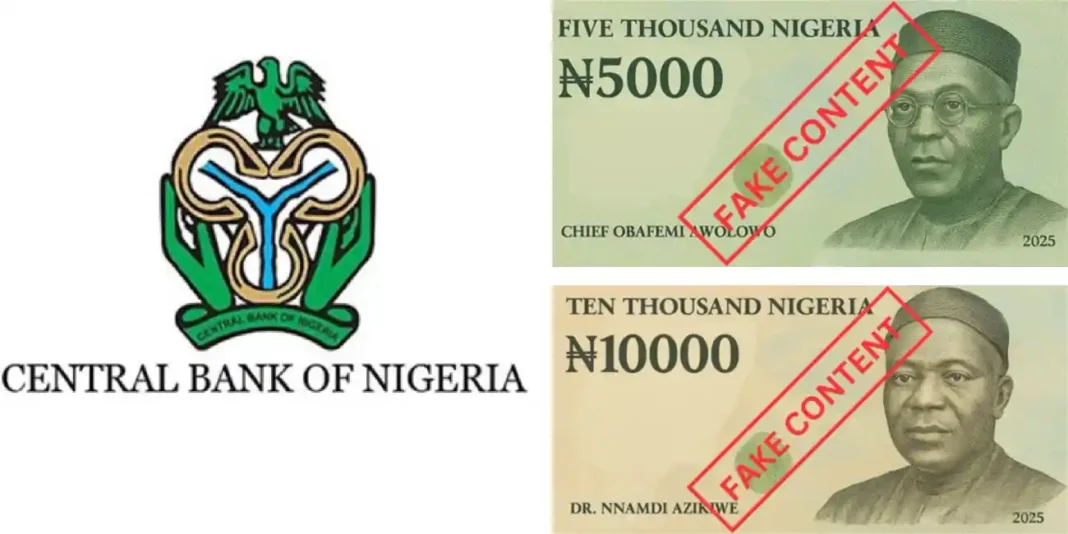The Central Bank of Nigeria (CBN) has issued a swift rebuttal to viral reports claiming the introduction of new ₦5,000 and ₦10,000 banknotes, dismissing the claims as “false” and “misleading.” The apex bank warned citizens to disregard the rumors circulating online and across social media platforms.
Origins of the Misinformation
Over the past 48 hours, unverified reports gained traction, alleging that the CBN had approved the high-denomination notes to “reduce cash-handling costs” and “improve liquidity management.” Some posts even cited a fabricated statement attributed to a purported Deputy Governor, Dr. Ibrahim Tahir Jr., falsely claiming the new notes would enter circulation by May 1, 2025.
Also Read: Biography of Bayo Bashir Ojulari: Group Chief Executive Officer of NNPC Limited
The false narrative included detailed descriptions of the supposed banknotes’ design, sparking confusion among businesses and financial stakeholders.
CBN’s Official Response
In a terse statement released Wednesday, the CBN clarified:
“The Central Bank of Nigeria has NOT introduced new ₦5,000 or ₦10,000 denominations. This content is NOT from the Central Bank of Nigeria. Kindly note that the official website of the CBN is cbn.gov.ng
The bank urged Nigerians to rely solely on its verified communication channels for updates on monetary policies.
Context: Past Currency Reforms
The rumors come amid lingering public sensitivity to the CBN’s 2022 naira redesign policy, which phased out old ₦200, ₦500, and ₦1,000 notes. That initiative, aimed at curbing counterfeiting and hoarding, caused temporary cash shortages and sparked widespread debate.
Analysts suggest the latest false claims may exploit public anticipation of further reforms. However, the CBN has repeatedly stated it has no plans to introduce higher denominations beyond the current structure.
Expert Reactions
Financial analyst Adaeze Nwosu warned:
“Such misinformation disrupts economic planning. If unchecked, it could trigger inflationary fears or speculative hoarding, even temporarily. The public must verify all monetary news through CBN’s portals.”
Next Steps
The CBN has not indicated whether it will pursue legal action against the sources of the misinformation. Meanwhile, cybersecurity experts advise Nigerians to:
1. Avoid sharing unverified currency-related updates.
2. Report suspicious posts to the Nigeria Financial Intelligence Unit (NFIU).
3. Cross-check announcements via the CBN’s official social media handles (@cenbank).
Stay informed with trusted sources.
— Reporting by Omajmite Don; Additional inputs from CBN Press Office.
For real-time updates, visit cbn.gov.ng






